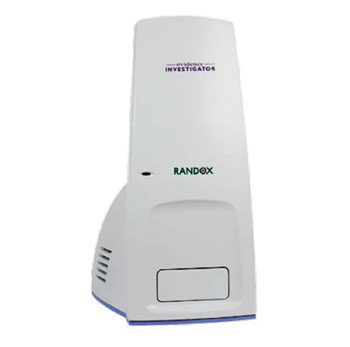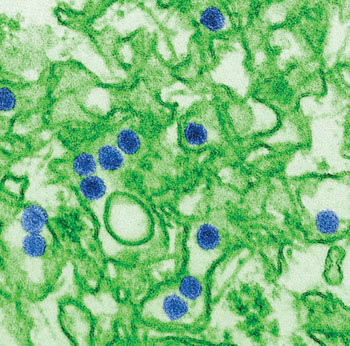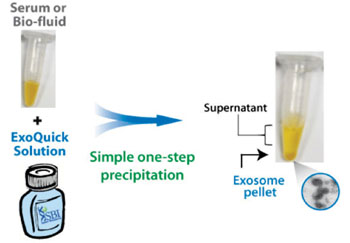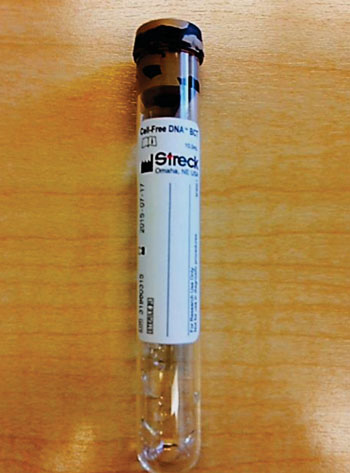New Biochip Array Developed for ApoE4 Classification
By LabMedica International staff writers
Posted on 04 Aug 2016
Apolipoprotein E (APOE) plays a key role in lipid metabolism and is recognized as one of the most powerful genetic risk factors for dementia and other neurodegenerative diseases. It has become one of the most widely studied gene variants in Alzheimer’s disease and constitutes a major consideration for preventive medicine.Posted on 04 Aug 2016
Biochip Array Technology (BAT) enables the determination of multiple analytes from a single sample. This technology has been successfully applied to a new biochip array to directly identify from a plasma sample whether patients are ApoE4 heterozygous, homozygous or null through simultaneous detection of both total ApoE levels and specific ApoE4 levels.

Image: The semi-automated benchtop Evidence Investigator analyzer (Photo courtesy of Randox).
Scientists at Randox Teoranta (Dungloe, Ireland) and their colleagues studied an initial cohort of 272 plasma samples of known genotype, which were used to establish initial assay parameters. ApoE exists in three common isoforms (ApoE2, ApoE3 and ApoE4), which are coded by three co-dominant alleles (e2, e3, e4). As such six common ApoE phenotypes exist within the general population E2/E2, E3/E3, E4/E4 (homozygous) and E2/E3, E2/E4, E3/E4 (heterozygous). A further cohort of 112 plasma samples of unknown genotype was utilized to verify performance characteristics established employing the initial cohort.
The team used a simultaneous chemiluminescent biochip-based sandwich immunoassays for measurement of ApoE4 and total ApoE directly from plasma samples were employed and applied to the Evidence Investigator analyzer (Randox Laboratories, Crumlin, UK; www.randox.com). Genotype concordance was further investigated by genotyping these same 112 plasma samples from circulating cell free DNA (cfDNA) through the use of another biochip array platform, based on a combination of multiplex polymerase chain reaction (PCR) and biochip array hybridization, which allows simultaneous detection of APOE specific single nucleotide polymorphisms (SNPs).
The scientists reported that from the initial cohort of 272 samples with known genotypes, 100% were correctly identified as null, heterozygous or homozygous for ApoE4 by the biochip array. From the additional 112 plasma samples, analyzed using BAT for protein and SNPs detection, 100% concordance was found between both approaches. ROC analysis showed that patient samples could be identified as APOE4 positive or negative with 100% sensitivity and 100% specificity, all in approximately three hours.
The investigators concluded that BAT can be successfully applied to provide a platform to rapidly and accurately detect an individual’s APOE4 status directly from a plasma sample. In combination with medical and family history, medication and lifestyle, this can deliver valuable information for personalized medicine approaches. An individual’s APOE status has been shown to affect pre-symptomatic risk, diagnosis, prognosis, and treatment response for a variety of diseases, in particular Alzheimer’s disease. The study was presented at the 68th American Association of Clinical Chemistry (AACC) Annual Scientific Meeting held July 31 to August 4, 2016, in Philadelphia, PA, USA.
Related Links:
Randox
American Association of Clinical Chemistry













